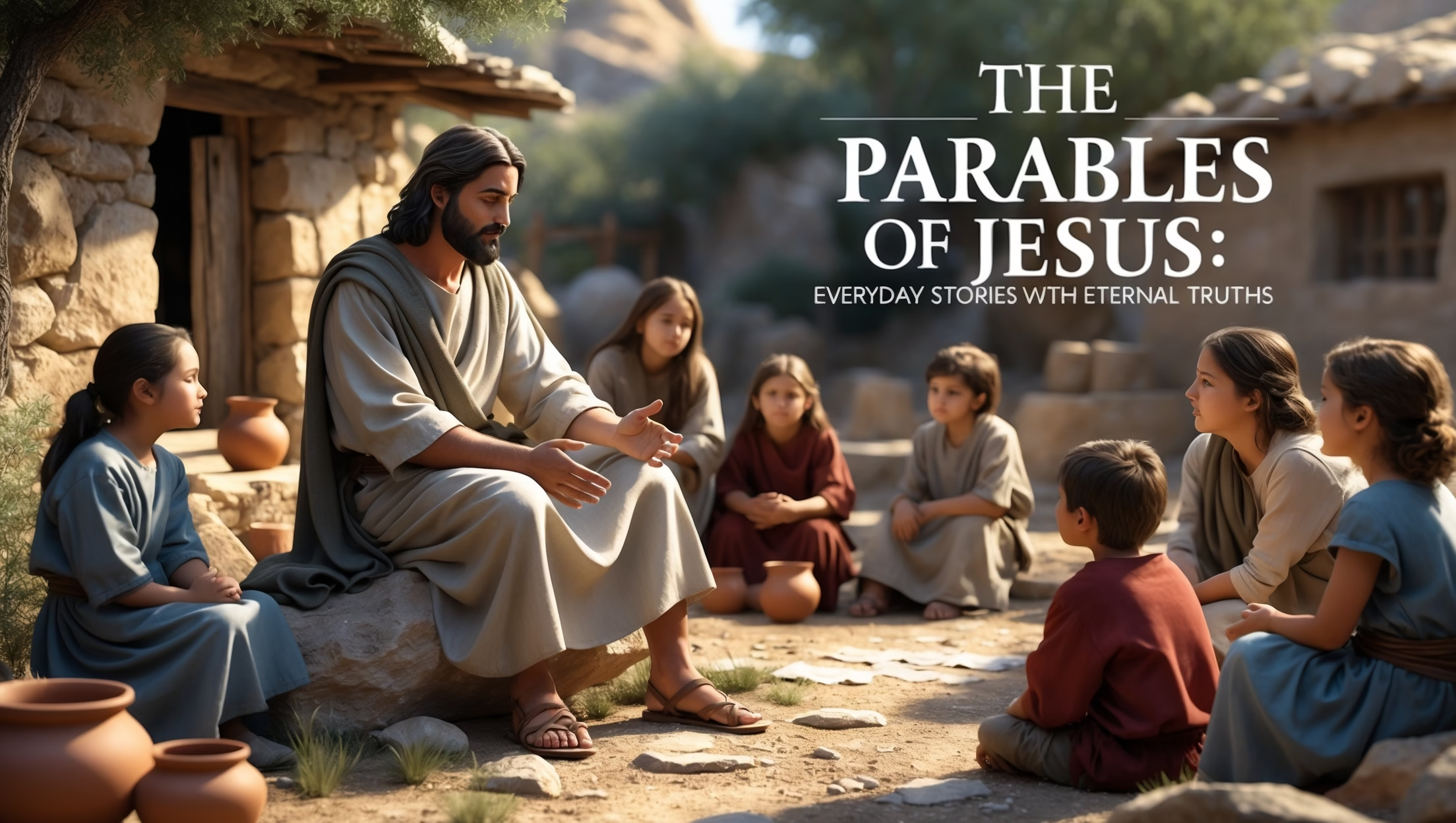Introduction
Jesus frequently used parables—simple yet profound stories drawn from everyday life—to communicate spiritual truths. These narratives were not mere anecdotes but carefully crafted lessons designed to reveal the realities of God’s kingdom, challenge moral assumptions, and inspire transformation. While ordinary in setting, parables carried extraordinary meaning, allowing listeners to grasp divine truths in ways that were accessible and memorable. Through them, Jesus connected His audience to God’s heart, offering guidance, correction, and encouragement that remain relevant today.

Why Jesus Used Parables
Parables served multiple purposes. First, they were relatable, drawing on familiar experiences such as farming, household tasks, and commerce. This accessibility allowed ordinary people to grasp the lessons without requiring scholarly knowledge. Second, parables provoked reflection. By presenting moral and spiritual truths in story form, Jesus encouraged His listeners to think deeply and engage personally with His teaching. Finally, parables revealed spiritual readiness. Those sincerely seeking God’s truth recognized the meaning, while others, indifferent or hostile, often dismissed the stories, fulfilling Jesus’ intent to separate genuine seekers from the indifferent (Matthew 13:10-17).
Parables About the Kingdom
Many parables focused on the Kingdom of God, revealing its mysterious growth, value, and transformative power.
- The Mustard Seed: Jesus described the kingdom as starting small like a mustard seed but growing into a large tree where birds could find shelter (Matthew 13:31-32). This illustrates how God’s reign begins subtly yet expands to encompass many.
- The Leaven: In this story, a woman mixes yeast into flour until the dough rises (Matthew 13:33). The kingdom spreads gradually, influencing all aspects of life from within.
- Hidden Treasure and Pearl of Great Price: These parables emphasize the supreme value of God’s kingdom. Finding it is worth giving up everything else, highlighting the cost of discipleship and the incomparable reward of participating in God’s reign (Matthew 13:44-46).
Through these stories, Jesus showed that the Kingdom of God operates differently than worldly systems—it grows invisibly, transforms hearts, and demands wholehearted commitment.
Parables About Forgiveness and Mercy
Jesus also used parables to teach the importance of forgiveness and mercy, central themes in His ministry.
- The Prodigal Son: This story depicts a father welcoming his wayward son with open arms despite his rebellion (Luke 15:11-32). It demonstrates God’s readiness to forgive those who repent, emphasizing love over judgment.
- The Unforgiving Servant: Contrasting the prodigal son, this parable warns against withholding forgiveness from others (Matthew 18:23-35). It reminds believers that mercy received must be extended, reflecting God’s character in interpersonal relationships.
These parables challenge listeners to embrace humility, repentance, and a forgiving heart, showing that authentic faith manifests in both receiving and granting grace.
Parables About Readiness and Judgment
Jesus also used parables to stress the importance of spiritual vigilance and responsibility.
- The Ten Virgins: This story (Matthew 25:1-13) teaches preparedness, showing that spiritual readiness is vital for entering the kingdom. Those who were unprepared missed the opportunity despite being part of the group.
- The Talents: Here, servants are entrusted with resources according to their abilities (Matthew 25:14-30). Faithfulness in using what God gives is rewarded, while neglect and fear result in loss.
These lessons emphasize accountability, wise stewardship, and active participation in God’s work, reminding believers that faith is lived through both readiness and diligent service.
Living the Parables Today
Parables continue to speak to contemporary life, challenging individuals to reflect on values, priorities, and actions. They invite believers to examine how they respond to God’s kingdom, practice forgiveness, and live with integrity. By engaging with these stories, we are reminded that God’s principles often contrast sharply with worldly wisdom, urging transformation from the inside out. Parables also cultivate discernment, teaching that appearances may be misleading and that God’s perspective requires deeper insight and faith.
Conclusion
The parables of Jesus remain timeless, revealing eternal truths through everyday experiences. They teach about the Kingdom of God, forgiveness, mercy, readiness, and faithfulness, offering guidance for practical living. These stories invite reflection, inspire action, and illuminate God’s heart for His people. By understanding and applying the lessons of Jesus’ parables, believers are equipped to live faithfully, embodying the values of God’s kingdom in ordinary life.








